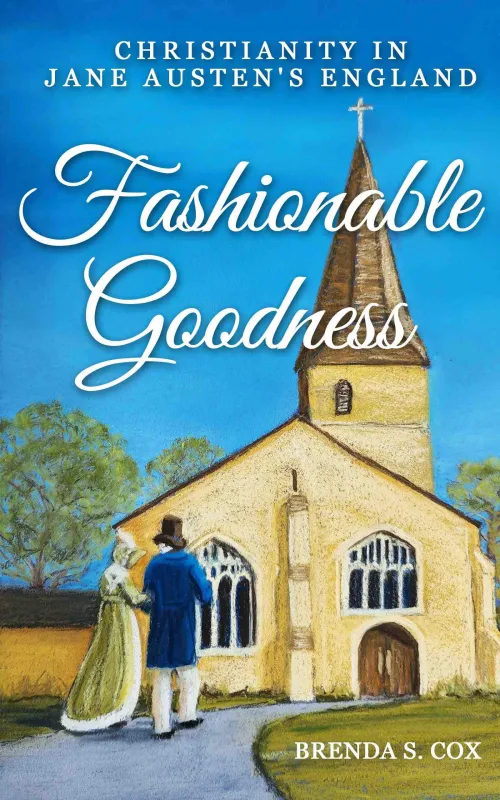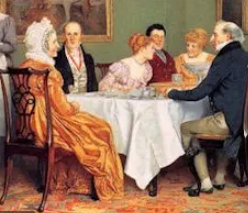Some of my most memorable family moments are during the times when we gather to play board or word games. On New Year’s Eve we played Apples to Apples, laughing and not caring whether we won or lost. During Jane Austen’s day, games helped to wile away the time on long dark winter nights or rainy evenings. Games could be fun, educational, or intellectual, just like today’s.
As discussed in previous articles in this blog, during the Regency era, writing in verse and rhyme was a popular pastime and mode of communication for the gentry, pseudo gentry, diarists, and authors. Mrs Cassandra Austen wrote recipes in rhyme; her daughter Jane wrote poetry (although they lacked the genius of her prose); guidebooks, such as Christopher Anstey’s New Bath Guide (1766) were written in rhyme; and stories in verse, like John Matthews’ description of a day in Bath, entitled Bath: An Adumbration in Rhyme (1795), had a dry, humorous tone admired during that time.
About Bouts-Rimé, a literary game (pronounced Boo-ReeMay):
Brittanica.com defines Bouts-Rimé as rhymed words or syllables to which verses are written, best known from a literary game of making verses from a list of rhyming words supplied by another person. The game requires that the rhymes follow a given order and that the results make a modicum of sense.
According to Wikipedia, a minor 17th century French poet named Dulot complained that he’d been robbed of valuable papers and three hundred sonnets. When surprised people wondered at his having written so many, Dulot explained that the sonnets were blank except for the ending rhyming words. “The idea struck everyone as amusing, and what Dulot had done seriously was taken up as a jest. Bouts-rimés became the fashion throughout the 18th century” and is still played today. The term means “rhymed ends” or a set of pre-selected final words.
The trick in writing bouts-rimés is to make sense of the words, The rhymes should seem effortless and natural, but a person choosing the rhyming words can put a spoke in the wheel of an opponent’s effortless creativity by selecting a set of rhyming words that seemingly have no connection.
Bouts-Rimés created by Mrs. Cassandra Austen and her grandson George Knight
The Jane Austen Centre website published a post on its blog with four bouts-rimés written in 1820 at Chawton House. Two were written by Jane Austen’s mother (C.A.) and two by Jane’s nephew, George (G.K.). On reading them, you might list the rhymed ends, and decide whose/which bouts-rimés are better in your estimation and why. Did they fit the criteria of the definitions listed above?
Why d’you ask me to scribble in verse
When my heart’s full of trouble and sorrow?
The cause I will briefly rehearse,
I’m in debt, with a sad empty purse,
And the bailiffs will seize me tomorrow. C. A.
I’ve said it in prose, and I’ll say it in verse,
That riches bring comfort and poverty sorrow,
That it’s better to ride in a coach than a hearse,
That it’s better to fill than to empty your purse,
And to feast well to-day than to fast till to-morrow. C.A.
To mutton I am not averse,
But veal I eat with sorrow,
So from my cradle to my hearse
For calves I’d never draw my purse
For lambs I would to-morrow. G. K.
I hate your French tragedies written in verse,
They fill me with laughter, not sorrow;
What Racine has written, let Talma rehearse,
The notions I’ve formed he would never disperse,
Though he laboured from now till to-morrow. G. K.

This digital collection features poems by John Tenniel (1820–1914) and others, with illustrations by Tenniel. From theHarry Ransom Center, Digital Collections, University of Texas at Austin
A modern version of a Bouts-Rimé
A post on the blog dVerse~Poets Pub mentions that the practice of writing boutes-rimés continues through the 19th century and to this day. Bouts-Rimés Revisited; Meeting the Bar | dVerse (March 10, 2016, Gayle Walters Rose.)
This bouts rimé printed in dVerse~Poets Pub and written in 2016 by Jack Collom, is more complicated than the verses written by A.C. and G.K. in 1820. Collom’s bouts-rimé consists of 14 lines based on the following words:
jump, fanned, lump; reading, lawn, misleading, yawn; yo-yo, death, no-no, breath; France and pants, as outlined in the book by Ron Padgett, in ‘The Teachers and Writers Handbook of Poetic Forms’ (2nd Edition).”
Posted are five of the 14 lines:
Getting burnt, evaporated, bleached, or tanned
By the sun ain’t no way to jump.
I’d rather plop in shadow, be fanned
By some geisha girl, and lay around like a proverbial lump.
I’m not that hot for so-called good reading …
(find the full 14 lines of this bouts rimé here)
Additional Resources:
- Find sets of rhyming bouts rimé at Babblings of a Bookworm, or create your own list of rhymed ends and pit yourself against a competitor!
- Digitized Bouts Rimés Manuscripts by John Tenniel, Digital Collection, Harry Ransom Center, The University of Texas at Austin








Very interesting Vic. I love word games. The English folk rock band Fairport Convention created the name of their influential album UNHALFBRICKING by way of a word game. The rules were that they had to create nonsense words that were opposites hence the un at the start of the word followed by two unrelated words put together. With the three parts they created the new word and so UNHALFBRICKING!!!…just a thought… how about to UNAUSTENNOVEL? Would that work?? Ha! Ha! John Lennon liked wordplay and Lewis Carol was the master of nonsense words. Have a great day. Tony
OK I can’t resist it Vic.
Using the above rhyming words.
I am not very good at verse
My efforts often end in sorrow
Even though I might rehearse
And I do have a full purse
I’ll try again tomorrow
Ha! Ha!
Now it’s your turn for the next verse Vic👍😀
Here you go, Tony. Not very erudite:
I’ve pondered long about this verse
but all I feel is sorrow
as I contemplate my empty purse
while forming words I must rehearse
to ask a raise tomorrow
Brilliant stuff,Vic. It would be great if other readers of this post can each add a verse. Tony
Tony, thank you. I changed request to ask, so that it sounded better. Your verse is quite witty as well.
I challenge readers to provide ending rhymes so that others may practice.
Here’s my attempt at a rhyme about the game:
The game is to create a verse
For fun and displace sorrow.
It won’t add money to your purse
No matter how much you rehearse
But might bring a smile tomorrow!
Great stuff Kevin.
Hi Kevin, that was fun too. Thanks for participating. V
When asked to write a verse
I prefer to pen words with joy, not sorrow
breathings of the heart, I do not rehearse
occasionally they earn coin for my purse
and it will help if I continue the word count for tomorrow
What a wonderfully unique contribution, Denise. so enjoyable. V
Thanks! Happy Birthday!